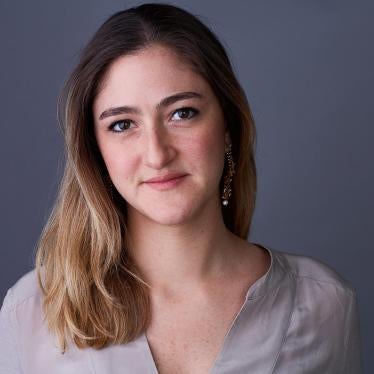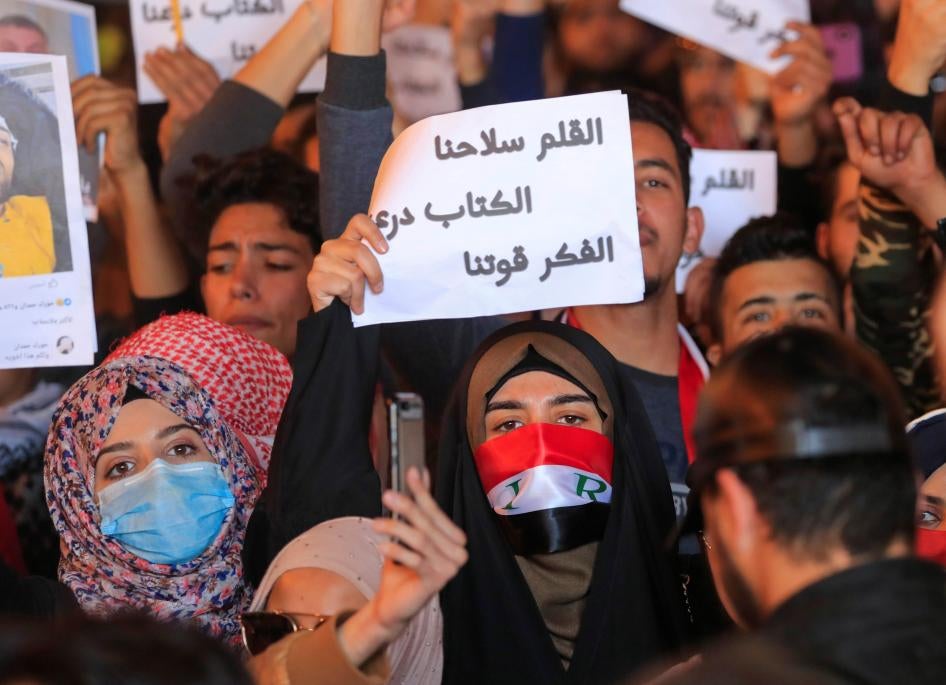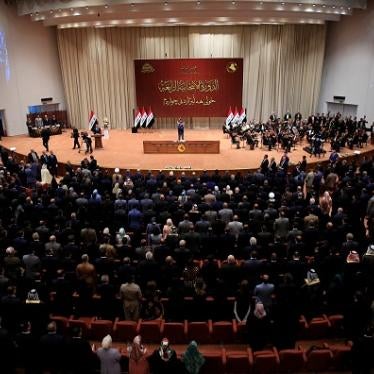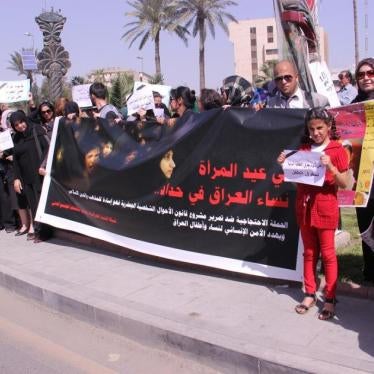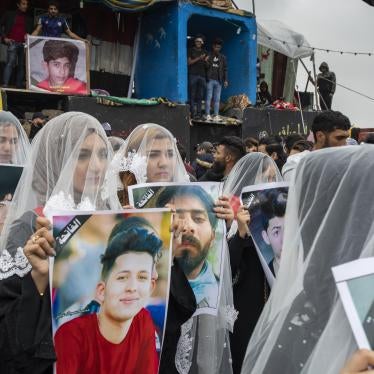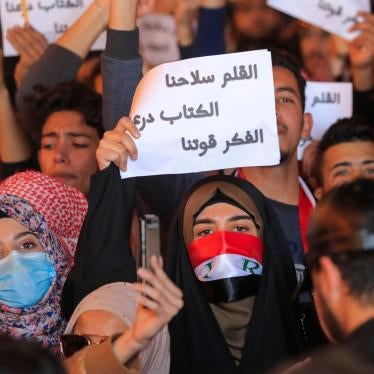Iraqi Prime Minister Mustafa Al-Kadhimi has been in office only a month, but he has wasted no time in taking on some of Iraq’s most serious human rights issues more earnestly than many of his predecessors. While these moves are a positive sign, Al-Kadhimi can prove his government’s dedication to redrafting its social contract with the Iraqi people by protecting free speech.
For a decade we have seen Iraqi journalists threatened, beaten, prosecuted and killed, sometimes at the hands of the authorities, with minimal action to protect them. The need to protect free expression should feature in the U.S.-Iraq “strategic dialogue” that is set to begin in mid-June.
Our research findings are grim. Iraqi authorities routinely use vaguely-worded laws to bring criminal charges against journalists and anyone else expressing opinions they object to. They rely on penal code defamation and incitement provisions drafted decades ago, including crimes as vague as “insult[ing] the Arab community” or any government official, regardless of whether a statement is true.
We examined 33 cases for an upcoming report, involving the prosecution of 21 activists and attacks against 14, most for supporting protest activities on social media platforms. None of the cases from Baghdad-controlled areas occurred after Al-Kadhimi took office on May 7.
Writing about corruption is a sensitive area that can lead to arrests and harassment, our research shows. We interviewed seven journalists and activists who came under attack because they documented and reported on corrupt practices. Haitham Sulaiman, 48, a protest movement organizer in Muthana, who publicly goes by Ayham al-Naimi, in an April 6 Facebook post called on the Muthana governor to investigate allegations of corruption within the health department linked to the purchase of COVID-19 masks.
The next day, Sulaiman said, Interior Ministry intelligence officials came to his home while he was out and warned his family that he should stop writing about corruption. On April 10, four men in civilian dress arrested him and took him to the Muthana intelligence office, where he said they beat him and forced him to sign a document stating that the Iraqi protest movement had been bankrolled by the United States. The authorities reportedly charged him under the penal code for willfully sharing false or biased information that endangered public security. His charges are pending.
Many of the people I interviewed said they thought public officials brought repeated lawsuits to intimidate them, even though they knew these cases most likely would be dismissed. In one case, prosecutors reportedly brought charges 14 times in 15 months against Ammar al-Khazaali, a 30-year-old social activist from al-Qadissiya, on a range of mostly defamation-related charges for “insulting” public officials.
Courts dismissed all charges either because of a lack of evidence or because the plaintiff withdrew the complaint. “The constant arrests, being handcuffed in front of people I know, it was all very emotionally exhausting and sometimes brought me to tears,” he said. “I am spending money on lawyers constantly, my family and friends are constantly worried about me, and they continue to target me.”
The penal code is not the only problem. In 2014, the Communications and Media Commission, “an independent institution” linked to parliament, issued mandatory guidelines to regulate media “during the war on terror,” which were renamed in 2019 and remain in place. As far as we can tell, there is no legal basis for the guidelines or the agency’s actions.
Following the start of protests in 2019, authorities ordered the closure of eight television and four radio stations for three months for allegedly violating media licensing rules, based on the guidelines, and warned five other broadcasters about their coverage. Unidentified armed men raided and damaged the offices of at least three news outlets in October. In early April, the commission suspended Reuters’s license and fined it 25 million IQD (US $21,000) for an April 2 article stating that the number of confirmed COVID-19 cases in the country was much higher than official statistics indicated. Iraq lifted the suspension on April 19.
The situation could get worse. A draft Information Technology Crimes Law, introduced by two parliamentary committees to parliament on Jan. 12, 2019, could further undermine the right to freedom of expression. Several articles of the draft would criminalize the use of computers in connection with a range of broadly defined activities, many of which are presently unregulated.
For example, Article 3 sets a term of life in prison and a large fine for intentionally using computer devices and an information network for the purpose of “undermining the independence, unity or safety of the country, or its supreme economic, political, military or security interests,” or “participating, negotiating, promoting, contracting with or dealing with a hostile entity in any way with the purpose of disrupting security and public order or endangering the country.” Given the way authorities have used the vague penal code provisions, this law, if passed, would be ripe for abuse.
In April, as is our common practice, Human Rights Watch submitted a list of questions related to our findings to Iraq’s Foreign Affairs Ministry, copying other government officials. We have received no reply beyond a confirmation of receipt. Despite the seriousness of our findings, I believe the lack of response matches the government’s unwillingness so far to address attacks on free speech.
Al-Kadhimi should bring the same seriousness he has demonstrated with other abuses to the country’s free speech crisis, including by pushing parliament to amend the laws and penal code articles that enable this repression.
